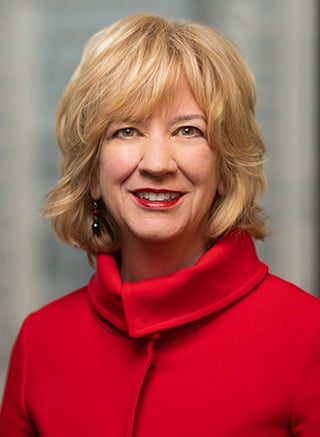Sidney Welch Quoted in Law.com on Increased Demand for Atlanta Attorneys in the Healthcare Industry
Law.com
Bradley attorney Sidney Welch was quoted in Law.com on the recent rise in demand for healthcare lawyers in Atlanta.
As a longtime Atlanta healthcare lawyer, Welch has built her practice over a number of years with a variety of big law firms in Atlanta. Now a partner at Bradley, she doesn't observe a “glut” of healthcare lawyers in Atlanta.
“I think there is plenty of work to go around, and we all kind of do different things,” Welch said.
Instead, she worries about this opposite: a relative shortage of transactional attorneys who specialize in the industry, compared to larger markets like Chicago or New York.
After the Great Recession, many Atlanta-based healthcare corporate lawyers retired or moved to being in-house counsel — which greatly reduced the number of experienced transactional lawyers who could train the next generation, Welch explained.
“Others with large corporate practice groups may very well disagree with that,” she said.
Welch added that a lawyer generally builds a healthcare practice in Atlanta by gaining expertise and specializing in three areas: transactional, regulatory and litigation.
However, she said a challenge to firms growing a practice area in Atlanta is having the resources to build enough bench strength to support major matters involving any of the three areas of a healthcare practice.
Those attorneys specializing in the transactional area focus on the buying, selling and financing of healthcare facilities, where Welch has been actively involved in recent years. Private equity also entered the healthcare industry in a major way in the late 2010s.
Healthcare lawyers specializing in the regulatory aspect of the industry are needed to “advise” on financing aspects of a deal, as well as work with government agencies in such areas as data privacy, Welch said.
Healthcare litigators generally are involved in everything from business disputes in the industry to white-collar crime related to fraud allegations under the False Claims Act, Welch said.
Welch said attorneys with national practices may represent more than one segment of the industry, such as high-end physician specialty practices or healthcare-related digital companies such as telemedicine providers.
But more significantly, healthcare as a practice area in Atlanta has evolved in recent decades from being ancillary to other practices, Welch said.
“Over that time period, it’s become less of a red-headed stepchild, if you will, to become a really robust and sought-after practice,” she said.
Welch said she began building her practice when only a “very small handful” of firms did healthcare regulatory work in Atlanta in the 1990s. She said she began with regional clients and grew her practice nationally.
Over the years, she said she watched firms enter and exit the Atlanta market, often to represent specific healthcare clients.
However, Welch said a major challenge for a healthcare attorney is finding a firm whose clients don’t conflict with the attorney’s clients.
A conflict historically has existed, for example, between lawyers representing physician groups or hospice operators, and firms that represent insurance companies with which the healthcare providers may be disputing payment amounts, Welch said.
“It’s always been, if you have a national practice, the Atlanta market’s always been a little different in trying to find a firm that has the platform without the conflicts that really can support what you want to do,” she explained.
Welch said many firms entered the Atlanta market with either healthcare provider or payor clients — but not both because of the conflicts.
The full article, “Demand for Health Care Lawyers Rises in Atlanta, Fueled by Consolidation, Private Equity,” was published by Law.com on June 23, 2025.

